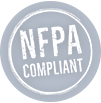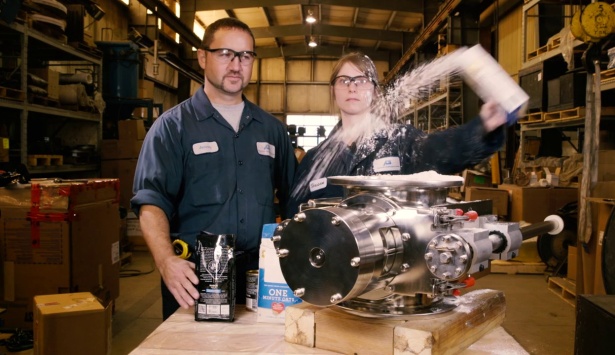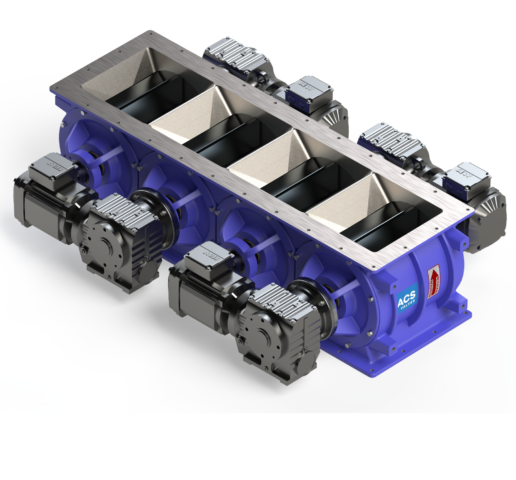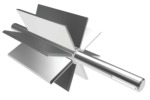 True
True
12" Multi-Port Series
Multi-compartment rotary valve for higher-volume applications or split-line conveying feedsSeparate airlock compartments for improved efficiency, uptime and NFPA compliance. Ideal for high volumes of free-flowing granular material or situations where multiple independent feeds are needed.
Downloads
Datasheet
Features & Benefits:
- Trough-style openings can be designed to fit dust collectors, hoppers, bins, silos and screw conveyors.
- Higher capacity with a smaller overall height for tight space engineered solutions.
- Tighter clearances enable NFPA compliance despite larger capacity outputs (since NFPA clearances can be challenging in larger airlocks).
- With independent drives, issues or a breakdown in one compartment can be contained and allow other compartments to continue operating.
- Common parts in a unique housing mean no special maintenance requirements. Spare parts are readily available (whereas spares for larger airlocks can have a longer lead time).
- Separate airlock compartments allow for intermittent feeds — two, three or four rotors can run simultaneously or independently for multi-line feeds.
- More compact design than other valves of its kind, which reduces stack-up in silos and dust collectors.
- Direct drives in each compartment allow for independent operation.
Options:
- Use to break up large pneumatic conveying systems into smaller, more manageable systems.
- Can be equipped with one elongated blow-through adapter to feed one system or multiple blow-through adapters for different line feeds.
- Equip with one large pressure blower package or several smaller ones for multiple systems.
Pet Food Blogs & Videos

Featured video
Will it clean?

Featured blog
How blow-through valves keep sticky materials flowing
Read about the blow-through rotary airlock valves that improve flow for hard-to-convey materials like fine powders.

Featured blog
Fail-safe food safety tips for rotary valves
The regulatory landscape is always changing, but there are surefire steps you can take to keep your valves and conveying systems free of contamination.




